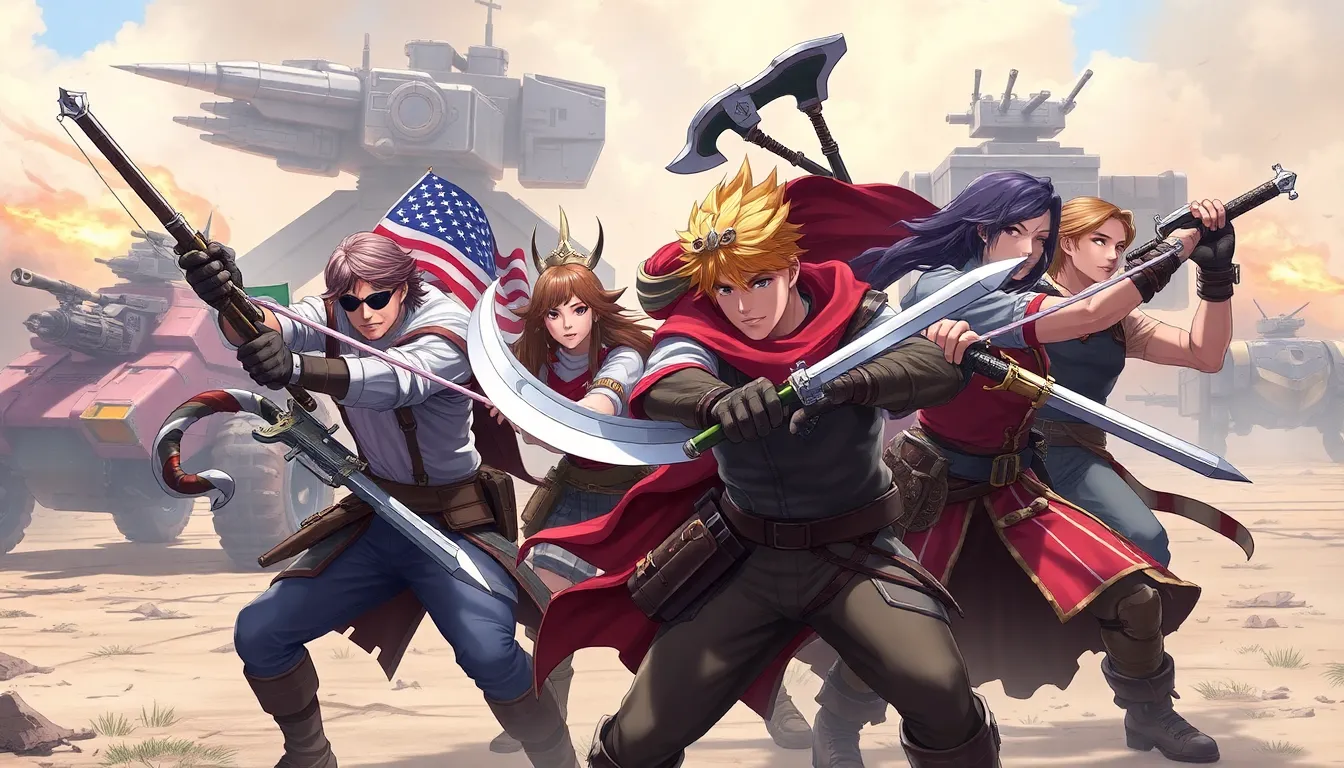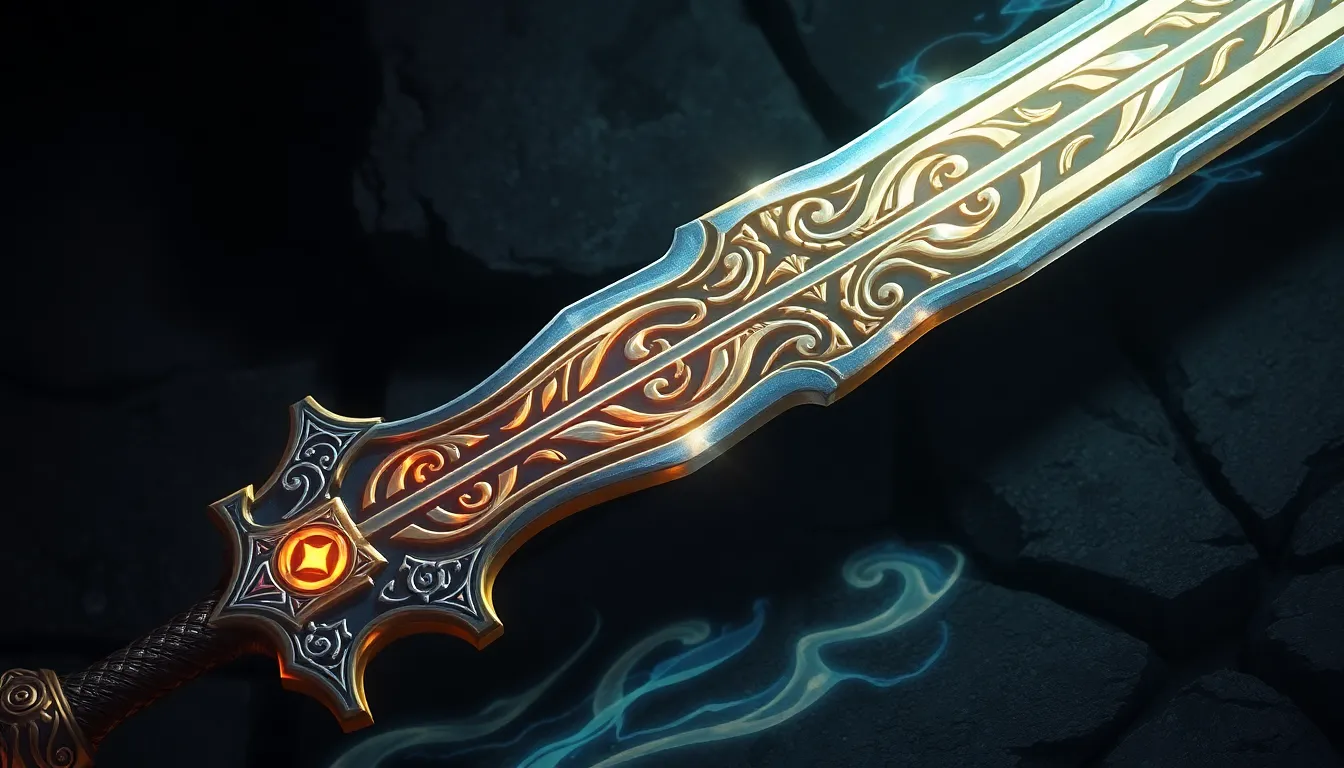In the colorful world of role-playing games, weapons aren’t just tools for destruction; they’re extensions of a character’s identity. From swords that sparkle with magical energy to crossbows that shoot flaming arrows, each weapon tells a story. Understanding the meaning behind these weapons can elevate gameplay from mundane to legendary.
Imagine wielding a sword that’s not just sharp but has a personality. It’s like having a chatty friend who’s always ready for battle. Whether it’s a trusty axe or a mystical staff, these weapons shape the adventures players embark on. So, let’s dive into the fascinating realm of RPG weapons and uncover the secrets they hold, ensuring every player knows exactly what they’re swinging into battle.
RPG Weapon Meaning
RPG weapons serve critical roles within gameplay, transcending their basic function. Each weapon embodies a unique narrative, connecting players to their characters’ histories. Magical swords, for example, often signify power and destiny, enhancing character development and plot progression.
Damage types affect gameplay strategies. Blunt weapons deliver forceful impacts, whereas piercing weapons provide agility in combat. Choosing the right weapon influences battle outcomes and shapes player choices throughout the game.
Additionally, aesthetic elements contribute to the appeal of RPG weapons. Intricate designs and visual effects immerse players, adding depth to their gaming experience. Iconic weapons, like Excalibur in Arthurian lore, invoke symbolic meanings linked to valor and heroism.
Customization options further enrich the experience. Players can imbue their weapons with enchantments or modify attributes to suit their play styles. This personal touch fosters a deeper connection to each weapon, making them essential components of the character’s journey.
Weapons also facilitate character interactions. They can represent alliances or rivalries between factions within the game’s world. Players explore these dynamics as they navigate quests, deepen relationships, and face their adversaries.
Understanding the multifaceted meanings of RPG weapons elevates the overall gaming experience. Recognizing their significance opens doors to richer storytelling and strategic gameplay. Embracing the narrative potential of weapons can enhance enjoyment and engagement in any RPG adventure.
Types of RPG Weapons

RPG weapons come in various types, each serving unique purposes and gameplay dynamics.
Handheld RPGs
Handheld RPGs feature weapons that characters wield directly. Swords and axes are common, each offering distinct damage types and combat styles. These weapons often reflect character attributes, like strength or agility. Players might encounter magic staves, which can enhance spellcasting abilities. Unique weapon traits, such as elemental damage or life-stealing effects, significantly influence strategy. Iconic handheld weapons possess their own lore, further enhancing player immersion. A character’s choice often signals a particular playstyle, fostering deeper connections to the game’s narrative.
Vehicle-Mounted RPGs
Vehicle-mounted RPGs include weapons integrated into vehicles for dynamic gameplay. These weapons range from turret-mounted guns to missile launchers. Artillery systems emphasize heavy damage potential, impacting large groups of enemies. Players experience different tactical scenarios when using these weapons in battle. Additionally, vehicle-mounted arms often require teamwork, as players coordinate attacks. Strategic placement of vehicles and their armaments can change the tide of combat. Integrating vehicles adds excitement while allowing players to utilize powerful weapons not available in handheld formats.
Historical Context of RPG Weapons
RPG weapons trace their origins to historical armaments used in various cultures. Swords, for instance, embody the chivalric ideals of medieval Europe, while bows represent the cunning and precision of ancient archers. Cultures developed distinct weapons that reflected their values, such as the katana in Japan symbolizing honor and skill.
Weapons in RPGs often draw inspiration from these historical contexts. Designers use specific weapon types to enhance gameplay mechanics while tying them to actual historical narratives. The presence of a magical sword may symbolize a quest for destiny, echoing stories from literature and folklore.
Developments in weapon technology over the centuries influenced how RPG weapons are perceived. Firearms entered the narrative with the industrial revolution, bringing new dynamics to gameplay strategies. Various games incorporate these advancements, allowing players to engage in tactical combat scenarios reflective of real-world warfare.
Additionally, weapons in RPGs often hold symbolic meaning. Icons like Excalibur signify heroism and destiny in quests, connecting players to their characters’ journeys. Players experience a richer narrative as they wield weapons that carry significant backstories.
Game designers structure weapon features to embody these historical contexts. Attributes such as elemental damage or accuracy are reminiscent of their real-world counterparts. Historical accuracy in these weapons often deepens player immersion and enhances emotional investment in the game.
As players progress through different RPG worlds, weapons evolve with them. Weapons not only serve a functional purpose but contribute to the lore that surrounds the game’s universe. Each RPG weapon resonates with historical significance, making them integral to the storytelling and gaming experience.
RPG Weapons in Popular Culture
RPG weapons often appear in various forms of media, reflecting their significant role in shaping narratives. Games like “Final Fantasy” showcase iconic swords, such as the Masamune, which symbolize power and destiny. Weapons in this franchise resonate with players, establishing deep connections to characters and their journeys.
“World of Warcraft” features numerous weapons, each with unique lore and abilities, enriching the player experience. Players wield artifacts like Ashbringer, which embody heroic legacies and drive entire story arcs. These legendary items enhance character identity and motivate players to embark on quests.
In literature, works like “The Name of the Wind” by Patrick Rothfuss portray weapons that define their wielders. The protagonist’s lute, while not a traditional weapon, serves as a tool for storytelling, reinforcing the connection between character and instrument. This blending of music and narrative elevates the concept of weapons as more than combat tools.
Movies such as “Blade Runner” include weapons that symbolize power dynamics and societal struggles. The futuristic elements of these films often incorporate high-tech weaponry, showcasing a contrast between tradition and innovation. This juxtaposition creates a compelling backdrop for character development and conflict.
Television series like “Game of Thrones” feature swords that symbolize honor and betrayal. The Iron Throne itself, constructed from numerous swords, represents the struggles for power throughout the series.
Merchandise inspired by these weapons contributes to their cultural significance, allowing fans to connect with their favorite characters on a deeper level. Collectibles, replicas, and art pieces further expand the influence of RPG weapons across different media, showcasing their lasting impact on popular culture.
Conclusion
RPG weapons are integral to the gaming experience, serving as extensions of a character’s identity and enhancing narrative depth. Each weapon tells a unique story that connects players to their characters and the worlds they inhabit. As players wield these tools of combat, they engage in a rich tapestry of strategy and storytelling that transcends mere gameplay.
The evolution of weapons reflects not just gameplay mechanics but also cultural significance, making them icons in both gaming and popular culture. Understanding the diverse meanings behind RPG weapons enriches the player’s journey and fosters a deeper emotional investment in their adventures. Ultimately, these elements combine to create a more immersive and rewarding RPG experience.

